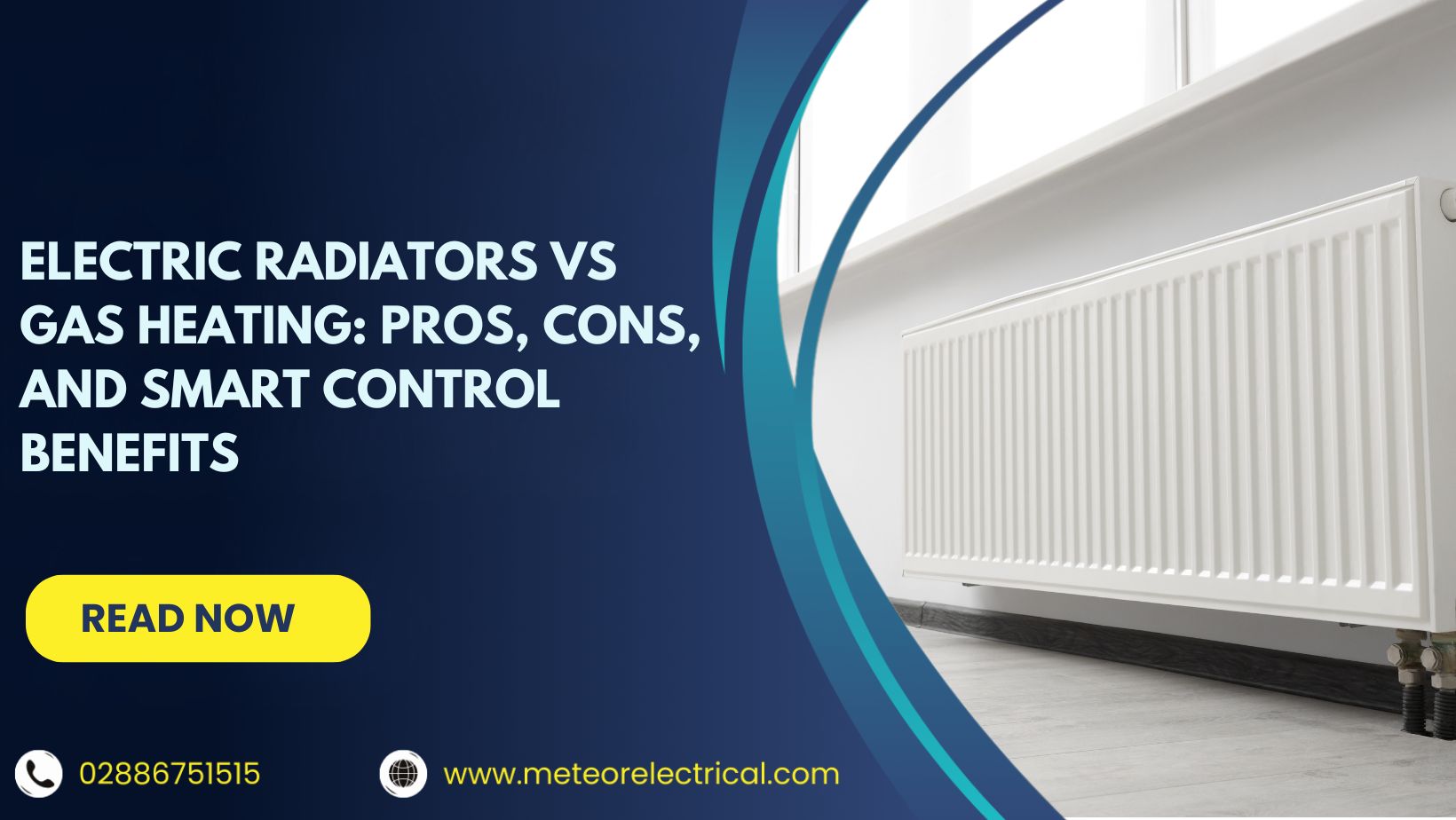Electric Radiators vs Gas Heating: Pros, Cons, and Smart Control Benefits
Electric Radiators vs Gas Heating: Pros, Cons, and Smart Control Benefits
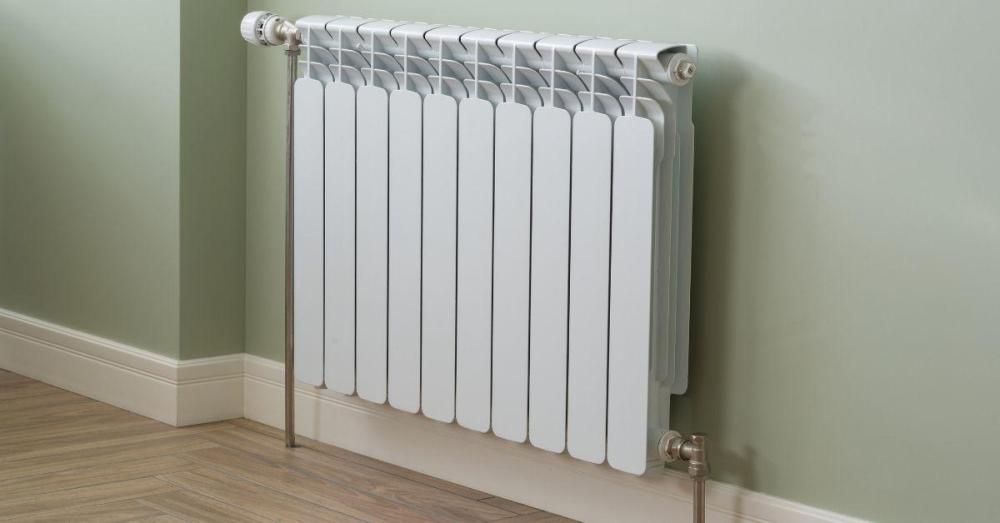
Choosing between electric and gas heating systems is a critical decision that affects both comfort and long-term energy efficiency. In 2025, with evolving energy policies and climate targets, electric heating systems are emerging as one of the most future-proof and sustainable options for homeowners. This updated guide evaluates the pros and cons of electric heating vs gas heating, discusses energy-efficient electric radiators, and explores the rising popularity of smart electric heating solutions and oil-filled electric radiators. Discover which system truly suits your home and how to make a cost-effective, eco-friendly switch.
Why Energy-Efficient Heating Matters in 2025
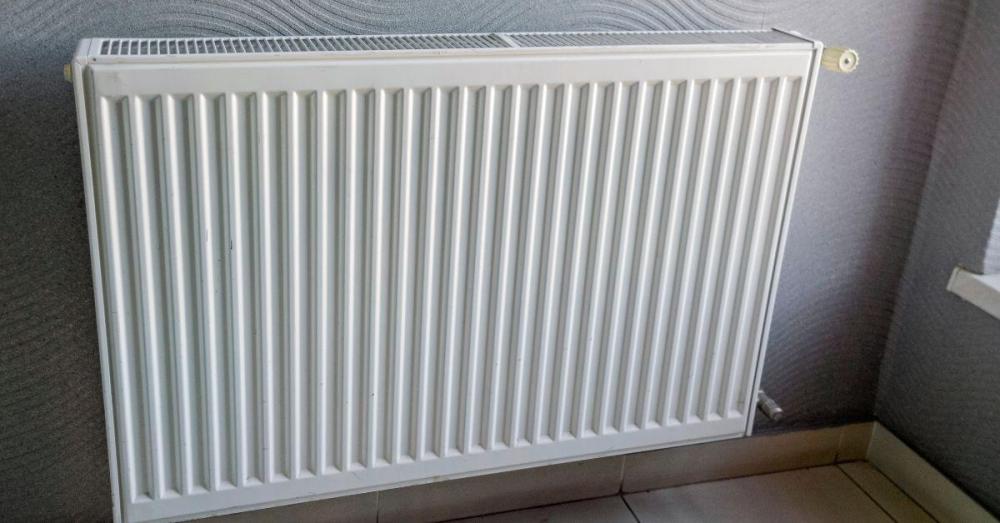
Home heating accounts for nearly 15% of the UK’s greenhouse gas emissions and constitutes the largest portion of household energy bills. With the government’s commitment to net-zero emissions by 2050, energy efficiency is no longer optional, it’s essential. Efficient heating doesn’t just reduce environmental impact; it also lowers utility costs and enhances indoor comfort.
Modern electric heating systems eliminate on-site carbon emissions, and when paired with renewable energy sources like solar panels or green tariffs, they become virtually carbon-neutral. Additionally, high-efficiency models like electric underfloor heating and smart electric radiators with WiFi control offer precise temperature management, reducing energy waste and improving comfort through zonal heating.
Types of Heating Systems Compared

Electric Heating Systems: The Future of Sustainable Warmth
Electric heating has evolved beyond basic plug-in heaters. Modern systems deliver 100% efficiency at the point of use, converting all electricity into usable heat with minimal losses. Key electric options include:
- Electric radiators: Wall-mounted units that heat rooms quickly and quietly.
- Storage heaters: Use off-peak electricity (e.g., Economy 7) to store heat for daytime release.
- Air-source heat pumps (ASHP): Extract heat from outside air, offering a Coefficient of Performance (CoP) of 3.5 or higher, making them four times more efficient than gas boilers.
- Electric underfloor heating: Thin mats or cables installed beneath flooring, providing even, radiant warmth ideal for modern homes.
Oil-Filled Electric Radiators: Silent, Efficient, and Long-Lasting
Among electric heaters, oil-filled electric radiators stand out for their thermal retention and silent operation. These units use dielectric oil to absorb and radiate heat, continuing to warm a room even after being turned off. This makes them ideal for bedrooms or living areas where consistent warmth is desired.
Gas Heating Systems: Cost-Effective but Environmentally Outdated
Despite lower unit costs, gas heating systems are increasingly being phased out due to environmental concerns:
- Gas central heating uses a boiler to circulate hot water through radiators, offering quick heating and widespread availability.
- Gas water heating systems also supply domestic hot water, making them a dual-purpose solution.
- However, gas systems emit carbon dioxide and risk carbon monoxide leaks, requiring annual safety checks.
With the UK government planning to ban gas boilers in new homes from 2025, the long-term viability of gas heating is questionable.
Radiant Heating Systems: Comfort from the Ground Up
Underfloor heating, especially the electric variety, is gaining popularity for its even heat distribution and compatibility with low-temperature systems like heat pumps. While installation costs are higher, the long-term comfort and efficiency pay off.
- Electric underfloor heating costs £60–£85 per m² to install, with running costs around £2,646 per year for a typical home.
- In contrast, wet (water-based) systems cost more but are cheaper to run long-term.
Comparing Electric vs Gas Heating: Pros and Cons

Pros of Electric Heating Systems
- Zero local emissions – improves indoor air quality
- Low maintenance – no need for annual boiler servicing
- Easy installation – no flues, pipework, or gas lines required
- Smart integration – WiFi-enabled controls allow remote scheduling
- Zonal heating – heat only occupied rooms, reducing waste
Cons of Electric Heating Systems
- Higher electricity unit costs – average 24.5p/kWh in 2025
- Dependence on grid – vulnerable during power outages
- Upfront costs for heat pumps – £7,000–£13,000, though grants are available
Pros of Gas Heating
- Lower running costs – gas at 6.04p/kWh
- Faster heating response – ideal for large homes
- Established infrastructure – widely available in urban areas
Cons of Gas Heating
- Carbon emissions – contradicts UK climate goals
- Safety risks – potential for gas leaks and CO poisoning
- Higher installation complexity – requires certified Gas Safe engineers
What Are The Best Electrical Heating Solutions?
With so many options to choose from, it’s difficult to decide on an electrical heater. If you want high-quality heating systems, visit Meteor Electrical.
At Meteor, we carry the Lifestyle range of oil filled radiators that provide excellent heating with low running costs.
Source - Electric Radiators Direct
Here are some of the best heaters we have to offer.
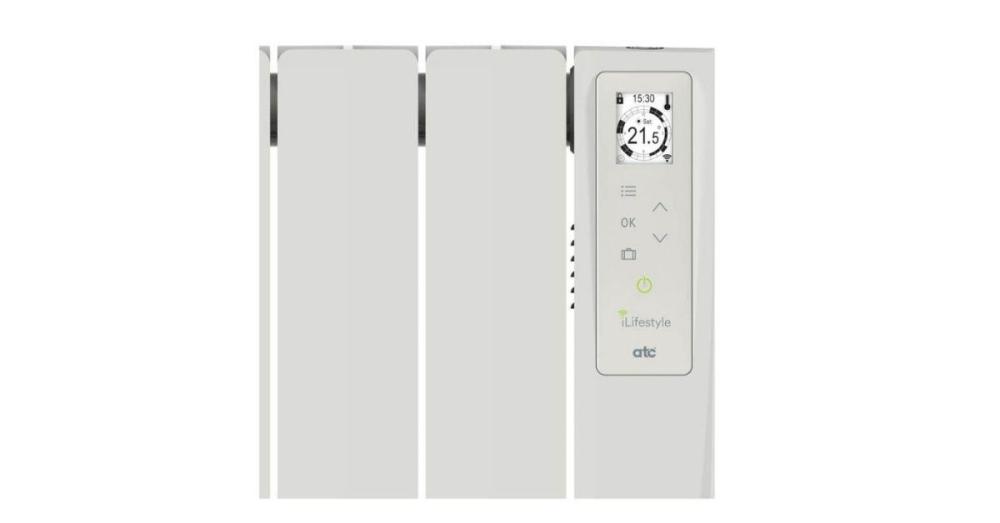
1. 500W ATC iLifestyle Electrical Heater
The 500W ATC lifestyle electric radiator is an award-winning smart heating solution that is great if you want to start out with smart electrical heating systems.
If you are looking for a high-quality heater compatible with smart home assistants, this is the best choice. This heating unit has Wi-Fi control capabilities, so you don’t need any external network to use your radiator.
The ATC heater is designed with aluminium fins to guarantee optimal heat emission. The 500W heater comes with three modes - eco, comfort, and frost to suit everyone’s temperature control needs. All ATC iLifestyle heaters are Lot 20 compliant making them ideal for sustainable heating options.
2. 750W ATC iLifestyle Electric Heater
The 750W ATC electric radiator is a great heating unit as it is incredibly versatile. This model is small enough to heat up a moderately sized property; however, you can purchase two of these models to increase the heat output for larger properties.
The ATC iLifestyle range uses thermic oil to provide excellent heat energy that lasts a long time. You can enjoy comfortable warmth even after shutting down your heater.
With the voice control function, you can manage your heating hands-free. This heater unit combines wifi connectivity and smart features to give you better control over your heating system without compromising on the heat output.
3. 1000W ATC iLifestyle Smart Electric Heater
If you want a heating solution that effectively heats up a moderately sized home but does not take too much power, you should consider the 1000W ATC iLifestyle electric radiator.
The ATC radiator is a great way to start building home automation in your household. Like all ATC heaters, this model has aluminium fins that spread heat evenly in your home. The smart radiator comes with wifi compatibility to access many more controls through your wireless network.
Choose the Future with Meteor Electrical
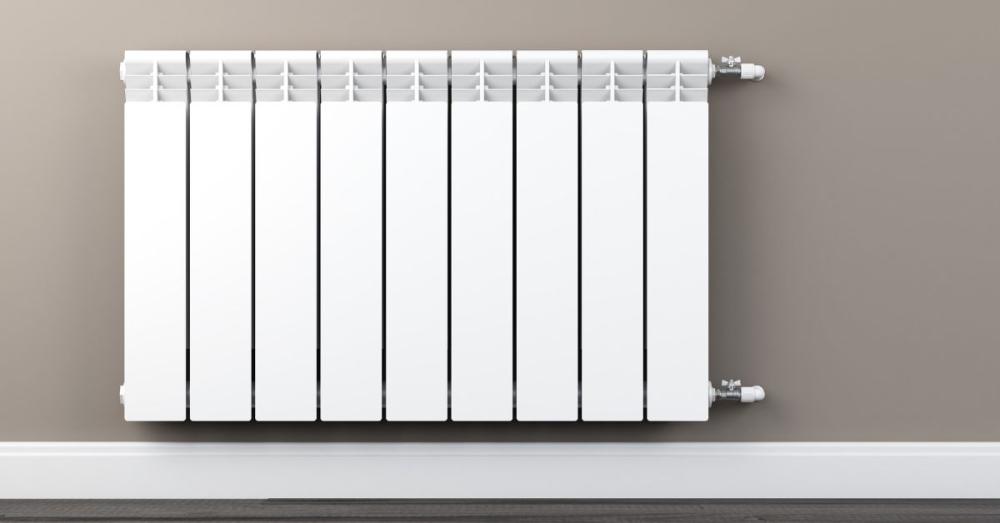
With smart electric heating solutions, oil-filled radiators, and energy-efficient electric underfloor systems, the future of home comfort is clean, efficient, and intelligent.
At Meteor Electrical, we offer the latest in eco-friendly, high-performance electric heating systems, from WiFi-controlled radiators to advanced underfloor kits. Whether you're upgrading a single room or retrofitting your entire home, we provide expert advice and premium products designed for modern living.
Upgrade your home today! Experience smarter, cleaner, and more affordable warmth with Meteor Electrical.
Visit us now and take the first step toward a sustainable, comfortable home.
FAQs
1. Is electric heating cheaper than gas in 2025?
While gas has a lower unit cost, electric heating is more efficient (100% vs 90% for gas), and systems like heat pumps can be cheaper to run when using off-peak tariffs. With rising electricity from renewables, long-term savings are likely.
2. Are oil-filled radiators energy efficient?
Yes, oil-filled radiators are highly energy efficient due to their heat retention. They use electricity to heat oil, which radiates warmth slowly, reducing cycling and energy use.
3. What are the benefits of smart electric radiators?
Smart electric radiators with WiFi control allow remote scheduling, voice activation, and room-by-room optimization, reducing energy waste and enhancing comfort.
4. Can electric heating work off-grid?
Yes, especially when paired with solar panels or battery storage. This setup enables fully renewable, off-grid heating with no reliance on fossil fuels.
5. Is underfloor heating better than radiators?
Electric underfloor heating provides more even warmth and is ideal for modern insulation standards. However, radiators are cheaper to install and better for retrofits.

